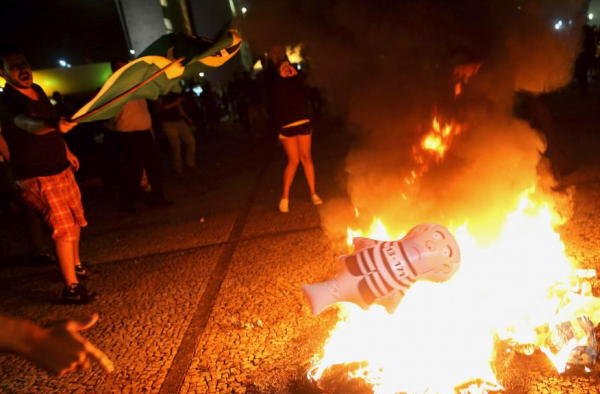To say that the last seven days have been tumultuous in Brazil would be a laughable understatement.
The country – which is on the fast track to “banana republic” status – plunged into chaos this week after a Sao Paulo state judge said a decision on the arrest of former President Luiz Inácio Lula da Silva should fall to federal judge Sergio Moro, the firebrand “rockstar” leading the prolonged car wash probe into corruption tied to Petrobras.
Sensing that Lula’s detention was imminent, embattled President Dilma Rousseff sought to save her mentor by offering him a ministerial position which would effectively make him immune from prosecution – at least in the near term. Lula still has legions of supporters in the country, but the millions upon millions who want to see the Rousseff government ousted saw through the President’s gambit immediately. And so did Moro, who tapped the President’s phone and subsequently released several dozen recordings, at least one of which appears to prove that she did indeed offer Lula the cabinet position to shield him from legal trouble. Cue the street protests.

Lula was sworn in during a farce of a ceremony which not even the PMDB bothered to attend and meanwhile, a committee was assembled to push forward with impeachment proceedings for Rousseff. A series of legal maneuvers from both sides set off a kind of “will he be minister or will he not” seesaw until finally, on Friday evening, Supreme Court judge Gilmar Mendes blocked Lula’s Lula’s appointment.
“Tensions also grew between the government and the federal police after Eugênio Aragão, justice minister, threatened to remove federal police teams from investigations, including the task force investigating corruption at Petrobras,” FT wrote on Sunday. “If there is even a hint that information has been leaked from one of our agents, the whole team will be changed and I don’t need proof — the federal police is under our supervision,” Mr Aragão told Folha over the weekend.












Leave A Comment